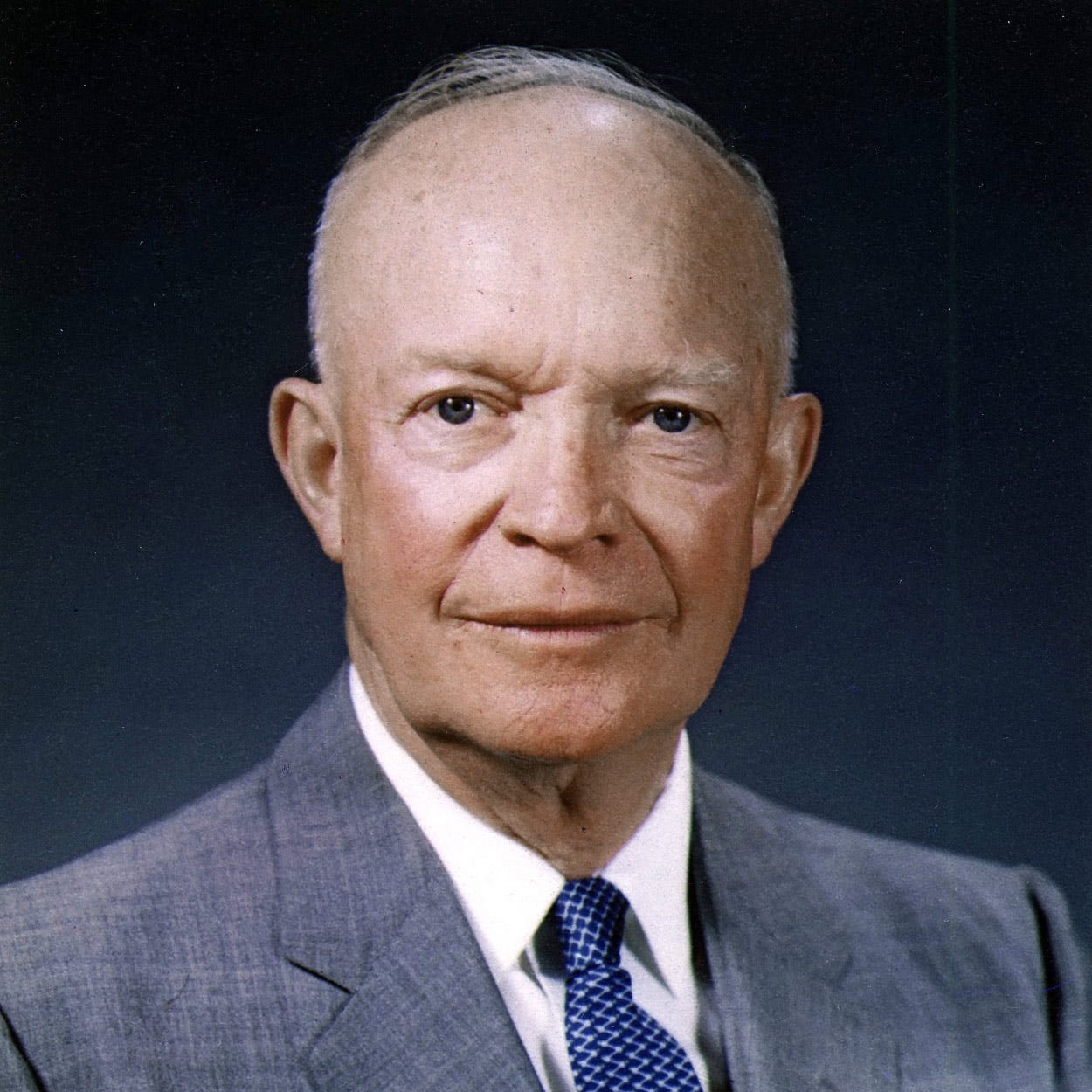Presidents have traditionally tried to avoid getting caught lying. It's bad for their personal reputations and for the brand of the American presidency. Rather than speak falsehood on any given subject, they would speak nothing at all. “No comment" didn't make reporters happy, but neither did it get presidents in trouble.
Philosophers of the presidency sometimes proposed that presidents might ethically lie. If Franklin Roosevelt had been asked in the spring of 1944 whether the American landing at Normandy would take place on June 6, he could have saved thousands of American and British lives by answering, "No—July 6,” and throwing off the Germans.
But such arguments were merely hypothetical. And flimsy. A ruse like this might work once, but not after that. Presidents learned not to answer such questions, and reporters not to ask them.
Dwight Eisenhower knew about military secrets and deception. While commander of Allied forces in Europe during World War II, Eisenhower honed psychological warfare, as it was then called, to a high art. Elaborate feints preceded the D-Day operation. Ike’s agents sowed disinformation ahead of the advancing Allied armies as they marched through France toward Germany.
During his presidency, Eisenhower extended the psy-ops into the Cold War. In his first term he directed the CIA to topple troublesome governments in Iran and Guatemala. In his second he approved a scheme to assassinate Patrice Lumumba, a Congolese leftist.
In all this Eisenhower tried to maintain a deniable distance from the covert warriors. They, not he, would take the fall if foiled and discovered.
But in 1960, with the finish line of his presidency in sight, he put himself in the middle of things. For several years Eisenhower had worried about Soviet missile capability and the secrecy that surrounded it. He ordered the CIA to develop a surveillance aircraft that could fly over Soviet territory and photograph missile installations. This would violate international law, so the plane had to fly high and fast to avoid getting shot down. The U-2 did just that.
Until May 1, 1960, when a plane piloted by Francis Gary Powers was shot down over the Soviet Union. The CIA informed Eisenhower that Powers could not have survived the shootdown and the crash that ensued.
On this assurance, Eisenhower approved a cover story that the missing American plane had been gathering weather information and accidentally strayed into Soviet air space. He of course knew this was a lie but assumed his statement couldn’t be disproved. To the extent he justified his lie to himself, he reasoned that the Soviets had made him do it by cloaking their missile program in secrecy. The Cold War wasn’t quite the same as World War II, but the same rules applied. Whatever had to be done to ensure American security was legitimate.
Before long he had to explain his dissimulation. Nikita Khrushchev, the Soviet leader, laid a trap for the president, letting the American lie gain broad currency before producing Powers and the plane’s spy equipment for the world to see. A red-faced Eisenhower called a press conference. “No one wants another Pearl Harbor,” he said. “This means that we must have knowledge of military forces and preparations around the world, especially those capable of massive surprise attacks. Secrecy in the Soviet Union makes this essential. In most of the world no large-scale attack could be prepared in secret, but in the Soviet Union there is a fetish of secrecy and concealment. This is a major cause of international tension and uneasiness today. Our deterrent must never be placed in jeopardy. The safety of the whole free world demands this.” How should honest Americans view this act of dishonesty by the government their president headed? “It is a distasteful but vital necessity.”
Americans appeared to agree. The U-2 shootdown and the blowing of Eisenhower’s cover scuttled a summit that had been scheduled with Khrushchev, leaving Ike to lament a lost chance for the superpowers to gain some breathing room in their nuclear arms race. But the American public took the president at his word that truth and open dealing took a back seat to security in the Cold War. He left office several months later almost as popular as he had been at any time during his presidency.
The Cold War and its arms race continued.


We've gone from this to cataloging presidential lies on a weekly basis, so far have we lowered the bar for presidential misconduct.
Presidents have lied since the founding of the republic, often in furtherance of questionable ends. From Polk’s assertion that Mexico had attacked U.S. troops across the border which got us into the Mexican-American War and McKinley’s repeating that Spain was responsible for the sinking of the Maine, through Bush’s selective use of questionable intelligence about weapons of mass destruction in Iraq to Obama’s deceptions about the U.S. response to the Islamic State, foreign relations of the U.S. have been driven by misrepresentations and lies about our real and fancied enemies.
Francis Gary Power’s flight was unnecessary. U.S. Intelligence had already established that the Missile Gap was non-existent. There was no need for any further proof. The flight, so close to the summit, was reckless, at best. The Soviet Union knew about the U-2 flights but had been unable to do anything about them to that point.
The idea that an Eisenhower-Khrushchev summit would have permanently eased Cold War tensions is unlikely. After the 1961 Vienna Summit, Khrushchev felt that he could push Kennedy around with no consequences. This ultimately led to the Cuban Missile Crisis.